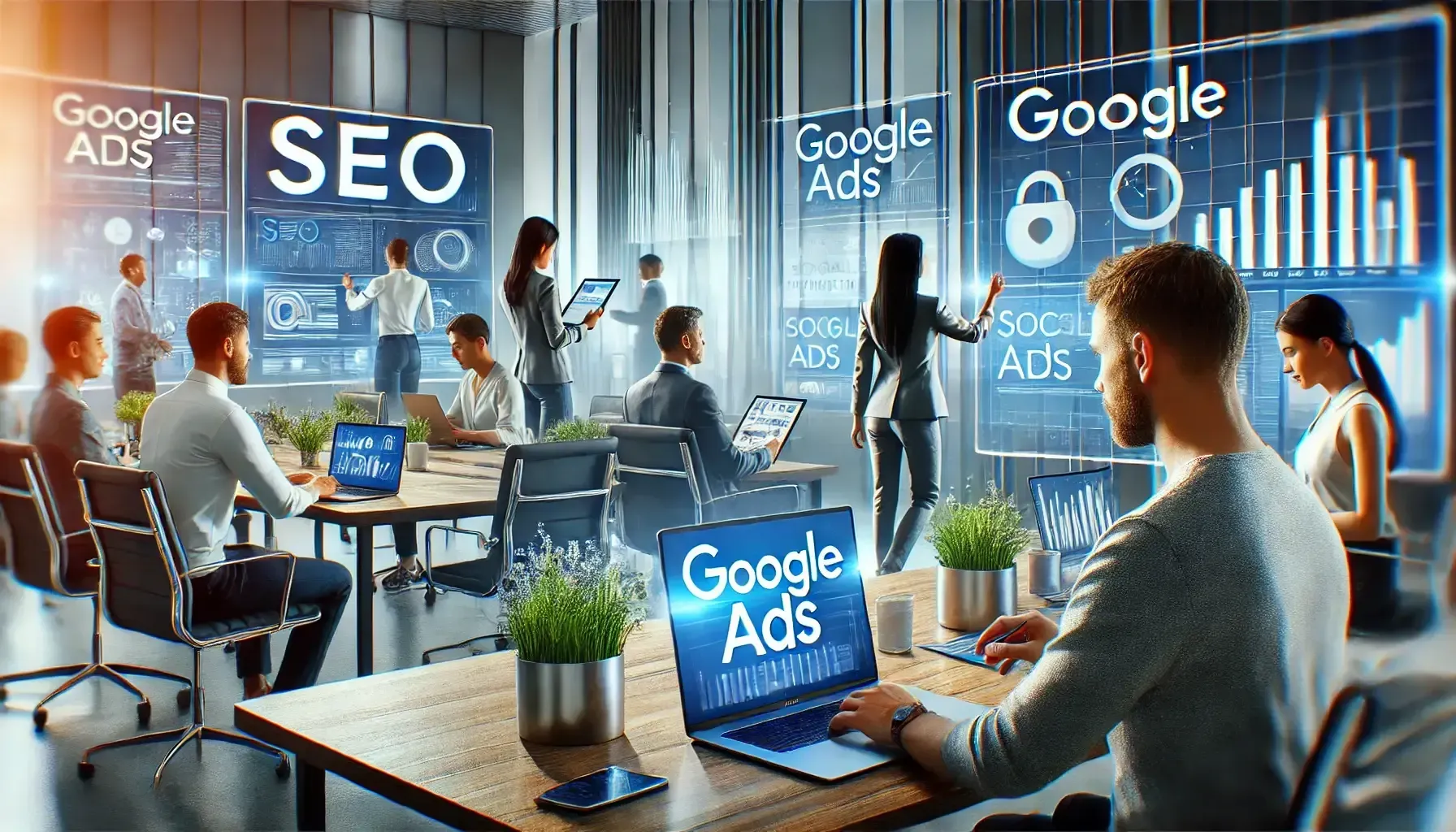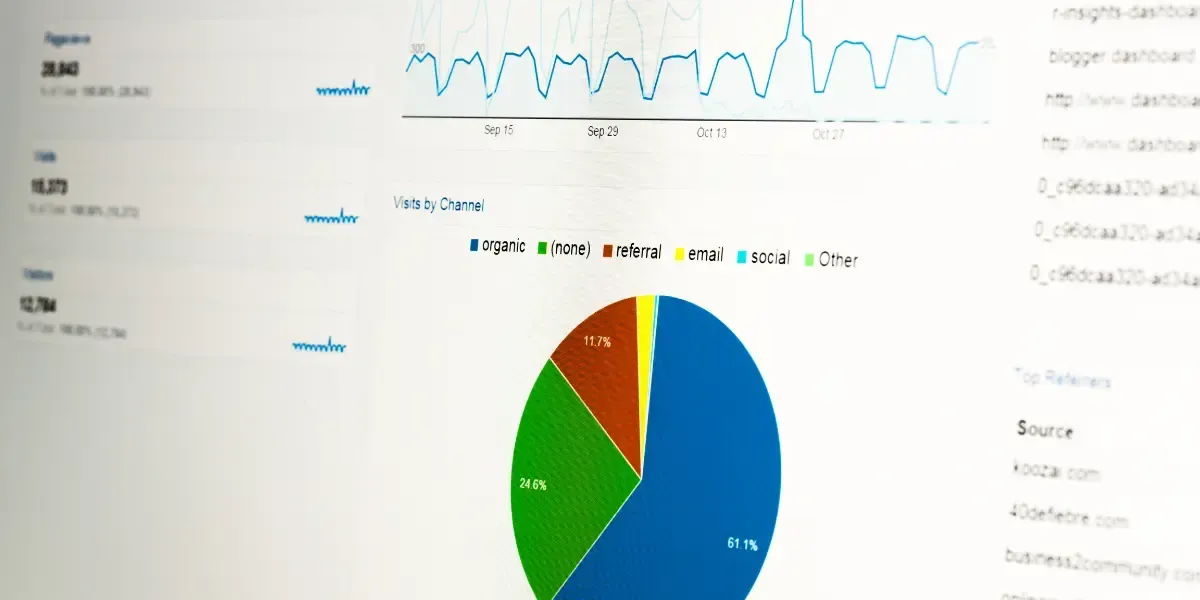Making The Right Move Outsourcing Or Training For Google Ads Success

Many businesses face a dilemma when it comes to their online advertising. Do you outsource your Google Ads management? Or do you get training for your staff to handle advertising in-house? According to recent studies, 65% of small-to-midsized businesses run pay-per-click (PPC) campaigns. Should you follow suit, what will be the right course of action for your business?
Contents
- Outsourcing Google Ads Management
- The Benefits of In-House Google Ads Training
- Finding the Right Balance: Hybrid Approach
- Considering Cost, Expertise, and Long-Term Goals
Listen to this article
In this blog, we will explore the benefits and considerations of outsourcing versus training for Google Ads success, shedding light on essential aspects such as Google Ads management, ad campaign performance tracking, and PPC management. Let’s delve into each option to make an informed choice.
Outsourcing Google Ads Management
Outsourcing Google Ads to an agency to manage your business can often be the right choice. Businesses that do so will find that by relying on professionals well-versed in Google advertising and AdWords management, they gain access to a wealth of experience and knowledge that can optimise their ad campaigns effectively. Studies conducted in 2019 indicated that approximately 63% of business-to-business (B2B) enterprises sought the assistance of marketing agencies by outsourcing a part of their marketing endeavours.
Moreover, these experts are well-equipped to track ad campaign performance meticulously, utilising data-driven insights to make informed adjustments and improve the return on investment (ROI). This option not only saves time and resources but also enables businesses to focus on other core aspects of their business, leaving the intricacies of Google Ads in expert hands. The advantages include accessing experts, like those from Clickthrough, with decades of experience in online advertising, amplifying the benefits significantly, freeing up time and resources, strategic planning and customisation, continuous monitoring and optimisation, and achieving cost efficiency.
The Benefits of In-House Google Ads Training
In-house marketers, on the other hand, can also be of immense benefit to your organisation. Having team members on hand to consult with can lead to greater access to key stakeholders, providing them with valuable information that can influence the direction of their campaigns. In fact, 38% of brands with in-house teams rate cost efficiencies as the main benefit, followed by brand knowledge and nimbleness.
By investing in comprehensive Google Ads training for your in-house team, you can take your business to new heights. With Google Ads certification and PPC training, your team will gain the skills and knowledge necessary to take complete control of your advertising efforts. Tailoring the learning experience to your specific business needs allows you to align marketing strategies with your brand’s unique voice and vision.
Continuous learning through online advertising courses and digital marketing workshops will keep your team updated with the latest industry trends and best practices, fostering long-term success in managing your Google Ads campaigns. Having the right expertise within your team enables you to navigate challenges swiftly and communicate effectively, ultimately driving success for your business.
Finding the Right Balance: Hybrid Approach
Many businesses may even find that this situation doesn’t call for either one or the other but instead makes the most of both for your organisation. Striking the right balance between outsourcing and in-house training can be a winning formula for many businesses. A hybrid approach allows you to leverage the expertise of external professionals while nurturing the skills of your internal team.
By collaborating with specialised agencies and concurrently investing in PPC management training for your employees, you create a powerful synergy that maximises the potential of your Google Ads campaigns. This approach fosters a sense of ownership within your team while benefiting from the insights and strategies of seasoned experts, resulting in an efficient and productive advertising strategy. Finding the right balance through this hybrid model ensures your organisation stays competitive and adapts to the ever-changing market landscape.
Considering Cost, Expertise, and Long-Term Goals
There are a number of considerations when choosing between management or training. The size of your operation, for one, will dictate whether you can justify including Google Ads as one of your employees’ responsibilities.
Evaluating costs, expertise, and long-term goals becomes paramount when deciding between outsourcing and training. Outsourcing may require higher upfront expenses, but the expertise and experience gained can lead to better ROI and improved ad campaign performance.
On the other hand, in-house training involves an initial investment in education but can prove cost-effective over time. To make a well-informed decision that aligns with your unique goals, consider your business’s current budget, the complexity of your advertising needs, and your growth projections. Google claims its advertising platform delivers an impressive 8:1 return on investment, highlighting the potential rewards for those who choose wisely.
Conclusion
Well, with that information in mind, hopefully, your path forward is a little more clear. Whether you choose outsourcing or training, making a well-informed decision can lead to a significant return on investment and improved ad campaign performance. As you navigate the ever-changing market landscape, remember that Google Ads can be a powerful tool when used wisely. Choose wisely and stay competitive in the digital advertising arena.
FAQ
What can I expect to learn from Google Ads training courses?
From Google Ads training courses, you can expect to learn how to set up and manage successful Google Ads campaigns, understand keyword targeting, ad creation, bidding strategies, and tracking performance to maximise return on investment (ROI) for your advertising efforts.
What is the role of a Google Ads management agency or team?
Schema markup is a structured data tool that can be added to HTML code to provide search engines with more context about the content on a webpage. It helps search engines understand the meaning and relationships of different elements, leading to enhanced search results known as rich snippets.
Digital Blog












